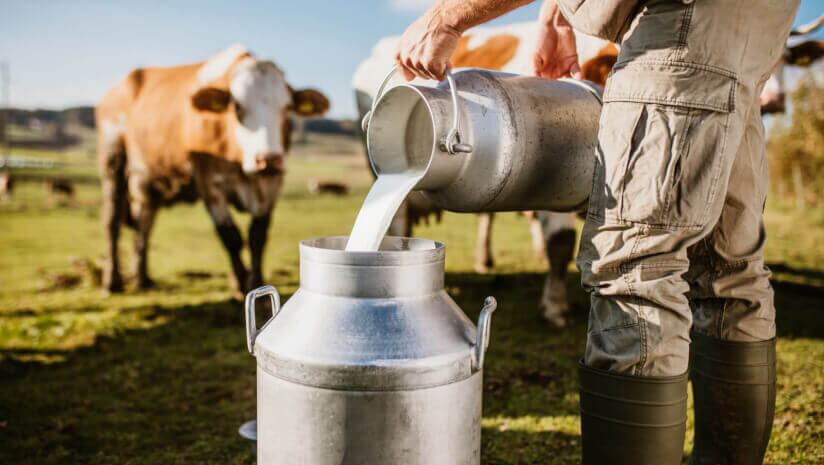Precision fermentation produces highly pure, functional proteins (e.g., complete proteins with essential amino acids) without the presence of lactose, providing similar or superior qualities to traditional dairy, Tony Pavel, executive director of the Precision Fermentation Alliance, explained to FoodNavigator-USA.
These proteins can match the functional properties of animal-derived ingredients, such as emulsification and texturization, which are key in applications like cheese, offering cost and formulation advantages.
Companies like Dairy X, New Culture and New Moo developed their animal-free casein to provide hormone- , lactose- and cholesterol-free benefits. Unlike plant-based proteins, which stop short of mimicking the stretch, creaminess and melting functionalities of dairy, animal-free casein self-assembles into micelles, similar to cow’s milk, to deliver the same performance in products like cheese, yogurt and milk – and without the use of stabilizers or fillers.
“Eventually, in the future the majority of milk proteins will come from precision fermentation. We believe this is the next step in evolution … but we also have to be honest. We are making the protein part. We do not make fats and we do not make sugars,” Arik Ryvkin, CEO, Dairy X, told FoodNavigator-USA.
Dairy X: Differentiating through gelating micelles
While precision fermentation serves as the primary method to produce animal-free casein, “not all caseins produced using precision fermentation are alike,” Maya Bar-Zeev, head of product development and downstream processing, Dairy X, said in a statement.
Rather, Dairy X developed a “next generation casein” using gelation micelles to grow in yeast, Bar-Zeev said.
In cow’s milk, casein proteins naturally cluster together into micelles, forming a gel-like structure that makes dairy products like cheese stretchy, creamy and smooth.
Dairy X mimics this natural process by engineering casein proteins to form micelles in yeast that mimics the structure in cow’s milk, Ryvkin said.
He continued, “The casein comes out of the cow. There are additional molecules which are not amino acids, and these molecules are called collectively, post translational modifications and they are critical to create the gel, which is the structural basis for dairy products. This is why we call it … smart casein or self-assembling casein because this is the property of the casein that is found in the cow that assembles into a micelle.”
This method creates the “functionality that cow milk has” and eliminates the need to use additional materials like stabilizers and fillers to “compensate for the lack of functionality,” Ryvkin explained.
Upcycling yeast byproducts, reducing greenhouse gas emissions
In an estimated life-cycle assessment, Dairy X found that approximately 50% of its greenhouse gas (GHG) emissions come from the wet cell mass of yeast, according to Ryvkin. Since the company does not yet have a full production process, the assessment was preliminary.
To address GHG emissions, Dairy X is partnering with a startup with plans to collaborate with a second, to upcycle the wet yeast mass into other useful molecules. This initiative could reduce emissions by up to 95% compared to traditional milk production, Ryvkin said.
“It could be [the startups] use their own technologies [where] they dissolve them into the raw materials which yeast are made of and use them for other purposes. So, that means this is not waste anymore but a byproduct they use for other industries. And this reduces our greenhouse gas emissions drastically,” he explained.
While Dairy X’s casein provides the functionality essential for alternative dairy products, the company intends to scale up and produce “millions of kilograms eventually” and reach price parity in the future, Ryvkin said.
Currently the company raised $2 million in a pre-seed round, in addition to participating in the Israeli Innovation Authority called Incentive, with plans to raise another round of funds for scaling up.
“Our investors are very happy with us. They [said] to keep going and keep hitting technological milestones because … it is not a hype anymore,” Ryvkin said.




